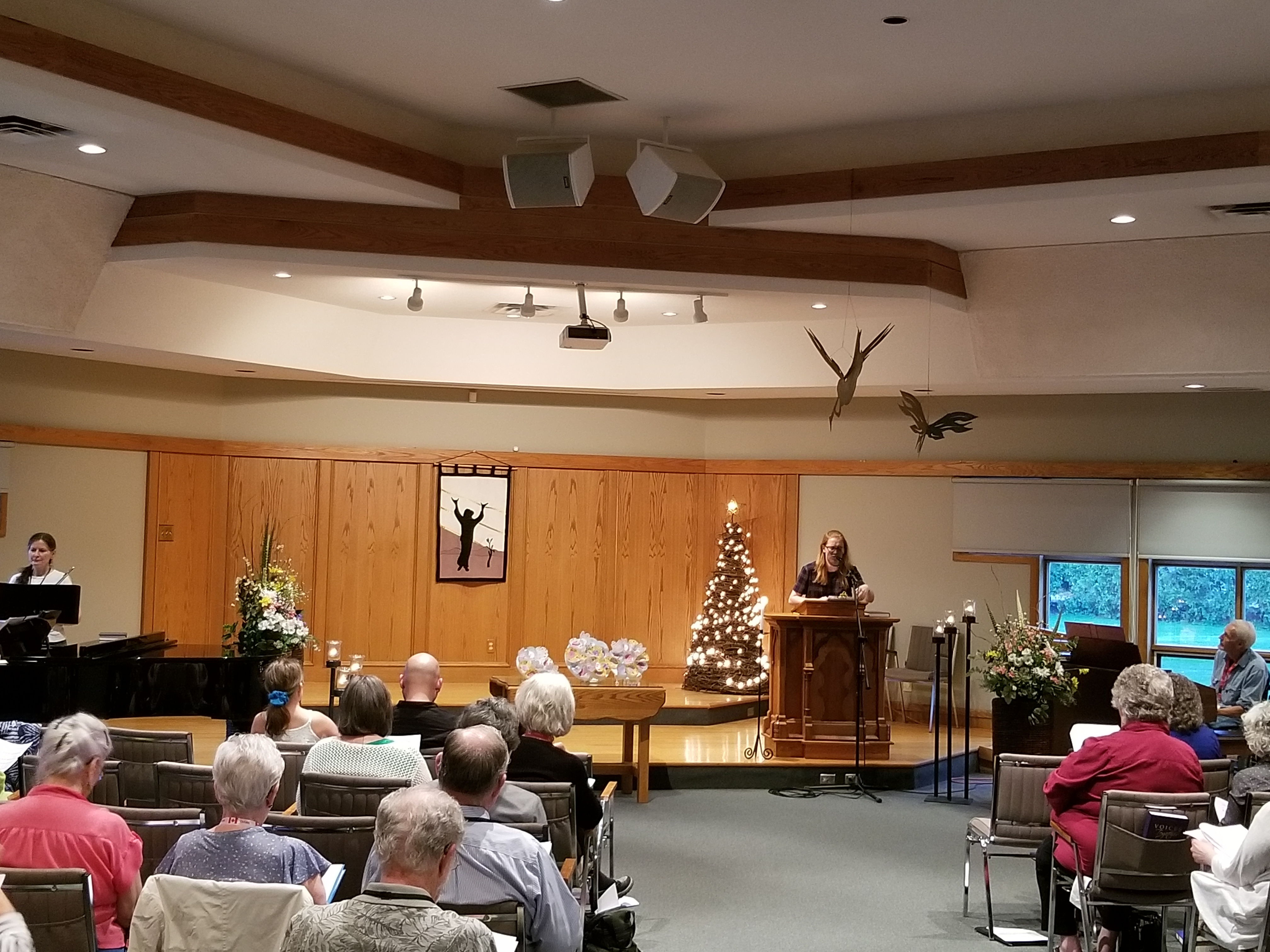Release Date: November 6th, 2024More Gifts than Challenges
“We caught new glimpses of the image of God in the people that we met through Renewing Rural Worship,” says Mykayla Turner, project director.
What does it mean to be in a rural place? What makes rural people and their connections and interactions unique? The Church at Nairn began to explore the nuances of worship in a rural setting. Mykayla developed a six-session workshop series entitled Renewing Rural Worship. Recognizing the importance of this work, she applied for and received a grant from the Calvin Institute of Christian Worship.
“The Church at Nairn is hosting a FREE ecumenical workshop series to address the gifts and challenges of worshipping in a rural context,” read the invitation as it reached congregations within one-hour driving distance. The response was enthusiastic, with people from Mennonite, Presbyterian, United, Baptist, Lutheran and Non-Denominational congregations answering the call to join the series. By focusing on the distinct characteristics of rural life, the series aimed to foster a deeper understanding of how these communities can draw on their strengths and create vibrant worship experiences.
In a session focused on communion, a leader began by standing at a table, guiding participants as they formed a single line to receive the elements. From there, the participants moved to the four corners of the room, gathering in small groups. In these intimate settings, they served communion to one another. Finally, the participants came together again, forming two lines that met in the middle of the sanctuary. As they reached the front, they served each other. The workshop participants observed that the act of communion takes on new dimensions depending on how it is served and by whom. Each method of communion offered fresh insights into understandings of God, neighbours and the Christian journey.
“Ecumenical dialogue brought us closer to God who is much bigger than what we could imagine ourselves."
 The Church at Nairn has since shifted their focus to explore how repetition can bring depth and ease to worship. Members discussed the practices of one congregation who chooses to conclude every service with the same song, a practice that simplifies worship planning by eliminating the need to select a different sending song each week.
The Church at Nairn has since shifted their focus to explore how repetition can bring depth and ease to worship. Members discussed the practices of one congregation who chooses to conclude every service with the same song, a practice that simplifies worship planning by eliminating the need to select a different sending song each week.
The conversation extended to other aspects of worship, such as using the same benediction or the prayer to receive the offering for every service. “It can be meaningful and good for us to return to the same song or prayer each week,” Mykayla highlights. “Not only does it enrich the congregation in ways that we may not be used to, but it reduces the burden for some of our worship leaders and helps to minimize lay leadership fatigue that many of us experience in rural congregations.”
Ecumenical dialogue and connections emerged as an enduring gift of this project. “There is so much that we gain when we do these things together, especially for those in isolated communities,” Mykayla observes. “Ecumenical dialogue brought us closer to God who is much bigger than what we could imagine ourselves. Trusting in that kind of God, through the ups and downs of rural worship, brings a lot of hope and comfort.”